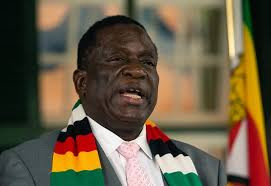
PRESIDENT Emmerson Mnangagwa’s victory in the tightly-contested August 2023 elections should have provided the ruling Zanu PF with an opportunity to work on improving the lives of the people, despite the criticism the party faced both internally and externally.
The election itself was fraught with irregularities ranging from the late delivery of ballot material to polling stations and the involvement of shadowy group, the Forever Associates Zimbabwe (FAZ), largely credited for having won the elections on behalf of Mnangagwa and Zanu PF.
The opposition Citizens Coalition for Change (CCC) cried foul over FAZ's involvement in the elections.
Mnangagwa and then CCC leader Nelson Chamisa had gone neck and neck to the wire.
Besides the contested outcome, Mnangagwa had claimed in 2018 that the Second Republic would ensure "Zimbabwe is Open for Business”.
However, he soon showed that if anything had changed since the ouster of the late long-ruling Robert Mugabe, it was the further institutionalisation of corruption — worsened by accusations of nepotism and cronyism.
The majority of Zimbabweans, who have for decades yearned for transformation in their lives, have continued to witness the economic abyss deepening while hope for any better days wane daily.
Now, yet another election beckons, at least according to the requirements of the country's supreme law. The constitution stipulates that anyone elected to serve as President may only serve a maximum of two five-year terms.
- Health workers’ grievances should be urgently addressed
- Salary talks deadlock … as doctors, nurses endorse strike
- Ziyambi defends Health Bill
- Young vocalist making southern Africa dance
Keep Reading
Mnangagwa's second and final term is due to end in 2028.
However, manoeuvres, skullduggery, gerrymandering as well as open fighting consistent with Zanu PF succession wars have already begun in earnest.
Groups are busy aligning themselves with certain individual politicians, openly coalescing and overtly giving indications of alignments and associations with either faction of the ruling party.
However, all the while, the country’s economy is in perpetual decline, worsened by the widespread corruption that has become commonplace.
What has immediately manifested is an uncertainty whose impact has been felt in the declining economic fortunes of the country.
This time with a new currency, the Zimbabwe Gold, introduced in April last year, fortunes have continued dipping. Civil servants are restive and are demanding a living wage.
The state of the nation’s roads is deplorable, power outages are worsening, impacting negatively on the little manufacturing, mining and agricultural activities going on while university lecturers have been on strike over better salaries and working conditions.
As the country inches closer to the 2028 elections that may or may never happen, it is the economy and the majority of Zimbabweans, who are the net losers and authorities must act fast to arrest the deteriorating situation.






